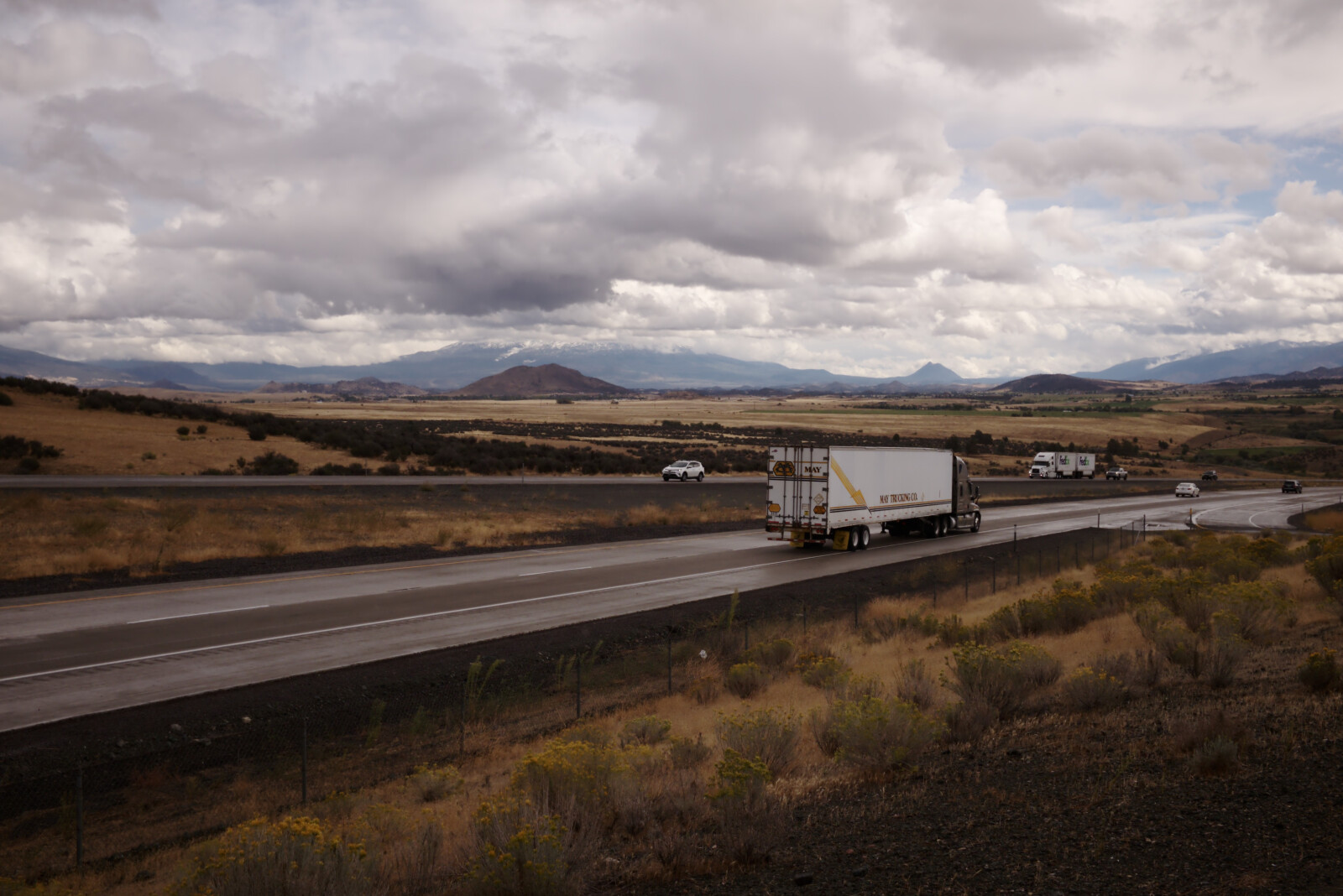Truck Accidents: Rising Injuries and Legal Considerations
The escalating incidence of truck accidents exposes a troubling trend in road safety. This article illuminates the intricate dynamics of liability, the implications of workers' compensation, and the critical role of discerning accident causes. We delve into the harrowing statistics, the types of injuries involved, and the available legal remedies, with a focus on Arizona's specific laws. Understanding the legal landscape surrounding truck accidents is crucial, providing a road map for survivors navigating this challenging terrain.

Key Takeaways
- Liability for truck accidents can fall on the truck driver or the trucking company.
- Understanding the causes of truck crashes can help determine liability.
- Truck accidents can result in severe injuries due to the large size and weight of trucks.
- It is important to consult with a local attorney to understand state-specific laws and receive accurate legal advice.
Understanding Truck Accidents: Causes and Liability
In understanding the causes and liability in truck accidents, we must scrutinize both the actions of the driver and the policies of the trucking company, as well as consider the specific laws and regulations relating to various types of trucks. A comprehensive grasp of truck accident causes can help clarify the often-complex issue of truck accident liability. For instance, driver fatigue, excessive speed, improper loading, and substance abuse are all significant factors in many accidents. Moreover, the trucking company's negligence in hiring, training, and supervising their drivers can also contribute to accidents. Furthermore, violations of state and federal trucking regulations can provide a strong indication of responsibility. Understanding these factors is essential for anyone involved in a truck accident.
Exploring Different Types of Trucks and Their Characteristics
We shall now delve into the various types of trucks, focusing on their unique characteristics and the specific regulations that apply to each. Trucks broadly range from delivery vehicles to heavy-duty 18-wheelers, each with distinctive traits and concomitant regulations. Different trucking regulations dictate the permissible weight, height, length, and speed, among other factors, for each type. For instance, a standard semi-truck is subject to distinct load and speed restrictions compared to a compact delivery truck. Understanding this regulatory landscape is crucial, particularly in the context of liability in truck accidents. An infraction of these regulations can significantly impact the fault determination process, thereby influencing insurance rates. Therefore, the aftermath of truck accidents on insurance rates is profound, underscoring the need for meticulous compliance with all pertinent trucking regulations.
Unpacking the Statistics: The Rising Number of Truck Accidents
Given the alarming rise in truck accidents, it is both crucial and challenging to understand the statistical landscape, as this aids in identifying key trends and informing preventative measures. The impact of truck accidents on insurance rates is significant, with increased premiums reflecting the heightened risk and cost associated with these incidents. This unfortunate trend also underscores the necessity of strategies for preventing truck accidents in the future. Measures could encompass stricter adherence to trucking regulations, advanced driver training, and improved vehicle maintenance. A comprehensive understanding of personal injury law is essential in navigating this complex issue, as it defines liability and compensation rights in accident cases. Ultimately, reducing truck accidents is a shared responsibility, requiring concerted efforts across all stakeholders.
Examining the Consequences: Injuries and Damages From Truck Accidents
How severe are the injuries typically sustained in truck accidents, and what types of damages can victims potentially claim in these cases? Given the considerable size and weight of trucks, the injuries sustained in such accidents are often severe, ranging from fractures and spinal cord injuries to traumatic brain injuries. Victims can potentially claim both economic and non-economic damages, including medical bills, lost wages, pain and suffering, and more. In cases involving willful or egregious behavior, punitive damages may also be awarded. The impact on survivors can be lifelong, underscoring the importance of pursuing truck accident compensation. Understanding the intricate web of trucking regulations and personal injury law is crucial in these cases, and can significantly influence the outcome.
Navigating the Legal Landscape: Considerations in Truck Accident Cases
Understanding the legal landscape in truck accident cases involves multiple considerations, including determining liability, understanding state-specific laws, and navigating the complex world of workers' compensation benefits. When a truck accident occurs, the process of determining fault can be multifaceted, requiring a detailed knowledge of trucking regulations and personal injury law. It could involve investigations into the truck driver's actions, the trucking company's practices, or even the vehicle's condition. On the other hand, workers' compensation benefits serve as a safety net for truck drivers injured in the scope of their employment, providing coverage for medical expenses and lost wages. However, these cases can be convoluted, demanding an expert's ability to explain complex legal concepts in understandable language. Thus, professional legal assistance is often crucial in these situations.
Steps to Take Post-Accident and the Role of State-Specific Laws
After a truck accident, there are four crucial steps to take, including assessing one's health and safety and seeking immediate medical attention. It's essential to contact the police and report the incident accurately. Securing evidence at the scene can be invaluable in later legal proceedings. The role of insurance companies comes into play at this juncture, with claims needing to be filed promptly. It is equally important to be aware of state-specific laws, as they can significantly influence the outcome of the case. Each state has unique trucking regulations and personal injury laws, which can impact liability and compensation. Therefore, it's advisable to consult with a legal professional experienced in truck accidents to navigate these complex legal landscapes and ensure your rights are protected.
Frequently Asked Questions
What Are Some Specific Measures Trucking Companies Can Take to Mitigate the Risk of Accidents?
To mitigate the risk of accidents, trucking companies can invest in comprehensive driver training programs that emphasize safe driving practices. Regular vehicle maintenance and the use of advanced safety equipment, such as rear-view cameras, automatic braking systems, and stability control systems, can also significantly reduce risk. Additionally, companies should enforce strict adherence to driving hours regulations to prevent driver fatigue. Legal counsel can provide guidance on industry regulations and best practices to further enhance safety measures.
How Does the Process of Filing a Workers Compensation Claim Differ for Independent Truck Drivers Versus Those Employed by a Company?
Independent truck drivers, unlike those employed by a company, are often considered self-employed. Therefore, they may not be covered under traditional workers' compensation insurance. Instead, they must secure their own insurance to cover potential 'Freelance Risks'. However, they may also enjoy 'Independent Benefits' such as flexibility to choose their insurance provider and coverage level. Navigating these complexities often requires a detailed understanding of trucking regulations and personal injury law. Hence, consulting with a legal expert is advisable.
Are There Any Unique Legal Considerations for Accidents Involving Self-Driving or Automated Trucks?
Accidents involving self-driving or automated trucks introduce unique legal considerations, particularly in the regulatory framework and liability assessment. The regulation of autonomous vehicles is still evolving, creating complexities in determining responsibility. Liability could potentially be attributed to various parties including the manufacturer of the automation software, the truck owner, or the human operator if there is one. Understanding these factors requires expert knowledge in both trucking regulations and personal injury law.
How Can Advancements in Trucking Technology Help Reduce the Occurrence of Truck Accidents and Related Injuries?
Advancements in trucking technology, such as automated braking systems, can significantly reduce truck accidents and related injuries. Enhanced driver training programs that incorporate this technology are crucial. Furthermore, enforcing safety regulations that mandate the use of such technologies could ensure wider adoption. These advancements can improve reaction times, mitigate human error, and ultimately enhance overall road safety. However, legal clarity on liability issues in cases of technology failure is essential.
How Does the Role of Insurance Companies Vary in Truck Accident Cases Compared to Other Motor Vehicle Accidents?
In truck accident cases, insurance companies play a critical role in determining compensation. However, unlike other motor vehicle incidents, these cases can involve additional layers of complexity due to the potential for multiple liable parties and heightened regulations. This can lead to complications in securing compensation and increased instances of insurance fraud. Thus, understanding these unique factors is essential in navigating the legal landscape of truck accidents.
Conclusion
In conclusion, the increasing number of truck accidents necessitates an understanding of the complex landscape of liability, specific state laws, and potential damages. As injuries escalate, comprehending truck characteristics, accident causes, and post-accident steps becomes vital. Both truck drivers and accident survivors must be aware of these factors to navigate the legalities effectively. Therefore, thoroughly investigating every facet of a truck accident is integral to ensuring appropriate legal recourse and fostering safer road environments.

This post has been generated by AI and was not reviewed by editors. This is Not legal advice. Please consult with an attorney.




